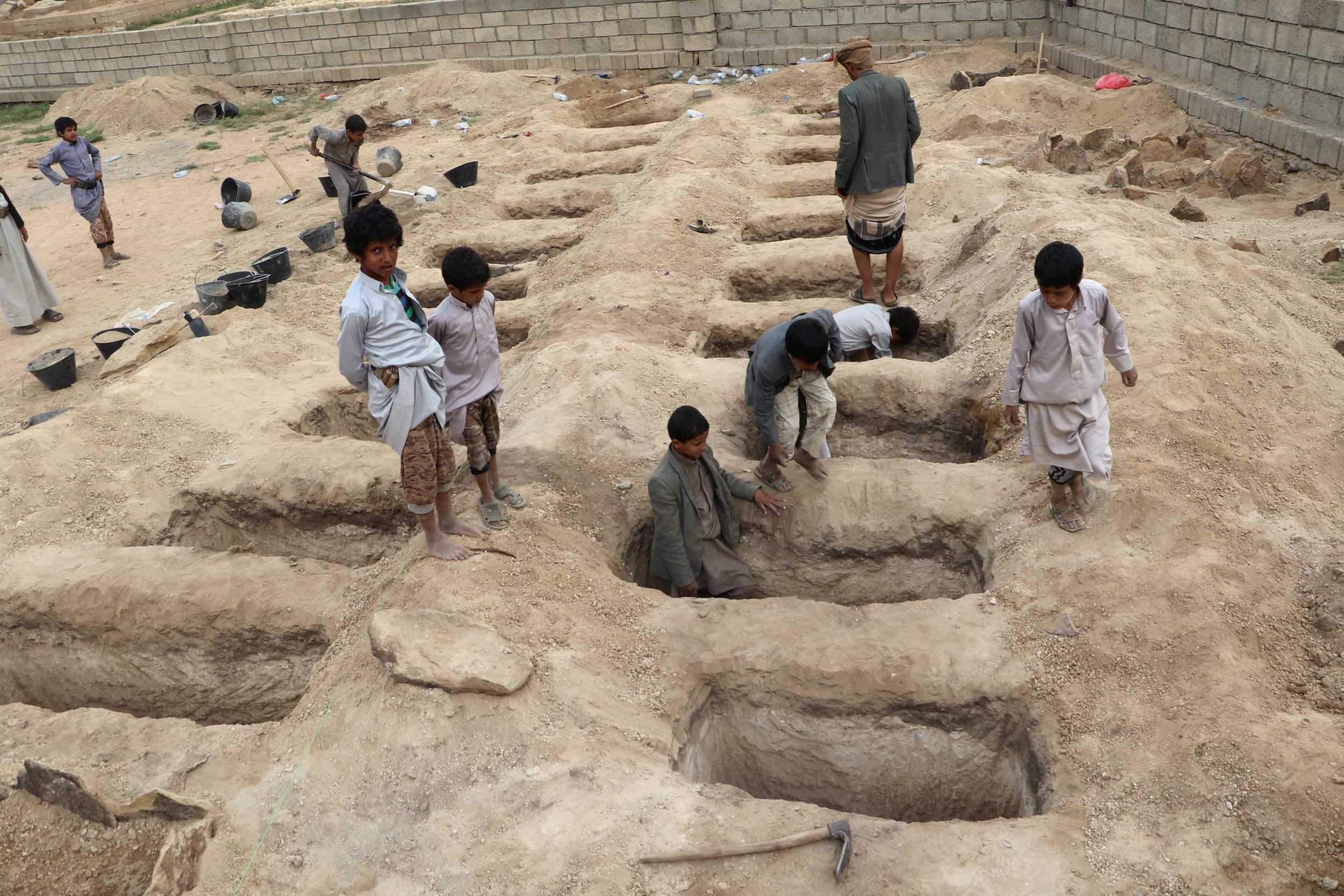Yemen: Saudis launch investigation into school bus airstrike that killed 50
Riyadh initially said strike that killed 40 children was a 'legitimate military operation carried out in accordance with humanitarian law'

The Saudi-led military coalition fighting in Yemen’s war has said it will investigate an airstrike last week which hit a bus of children returning from a picnic.
The Red Cross says last Thursday’s attack killed at least 51 people, including 40 children, after a missile hit the stationary vehicle in a market in Dahyan, in rebel-controlled Saada province.
Footage of distressed children covered in blood arriving at medical centres sparked outrage around the world. The incident has also reignited debate over the role of Western countries such as the UK and US in supporting the coalition fighting Houthi rebels through both arms sales and operational support.

Mourning families buried their children over the weekend.
Hussein Hussein Tayeb, who lost his sons 14-year-old Yusef, 11-year-old Ahmed and nine-year-old Ali, asked God to grant him patience.
“I was one of the first to arrive on the scene, seeking to rescue the wounded; I lifted a body and I found that it was Ahmed’s face. I hugged him, he was my son,” he told a Reuters reporter.
Henrietta Fore, executive director of the UN’s children’s fund, said the “horrific” attack marked “a low point in (Yemen’s) brutal war.”
The Riyadh operations centre initially said the strike was a “legitimate military operation carried out in accordance with humanitarian law”.
The attack had targeted a Houthi missile launching site which has been used to target the Saudi city of Jizan just over the border.
A tweet from the state-funded Saudi television channel al Arabiya on Sunday, however, quoted an unnamed “senior official” who said an investigation into the “collateral damage” from the incident had been launched to “bring the perpetrators to account and compensate the victims”.
A Houthi spokesperson said the group would welcome and cooperate with an international inquiry.
Probes into the Saudi-led coalition’s activity, however, have to date been internal investigations, which have almost always absolved the coalition of causing unlawful civilian deaths.
A 2017 report by the coalition’s Joint Incidents Assessment Team discovered mistakes in only three of 15 incidents reviewed, despite repeated claims from human rights groups that the coalition has repeatedly failed to take adequate precautions to protect civilians.
Full-scale civil war broke out in Yemen in 2015 after Houthi rebels seized control of the capital, Sanaa.

Since then the conflict has descended into a stalemate and civilians are suffering in the world’s worst humanitarian crisis, including the biggest cholera epidemic in modern history.
Eight million people are now living on the brink of famine and a further 22 million are in need of aid to survive.
The UK, US and other Western countries have been heavily criticised for increasing arms sales to Saudi Arabia and the UAE in the past few years, shipments which campaigners say are destined for use in the complex conflict.
The UN has made tentative progress in restarting stalled peace talks, the first round of which are scheduled for next month in Geneva.
Join our commenting forum
Join thought-provoking conversations, follow other Independent readers and see their replies
Comments
Bookmark popover
Removed from bookmarks